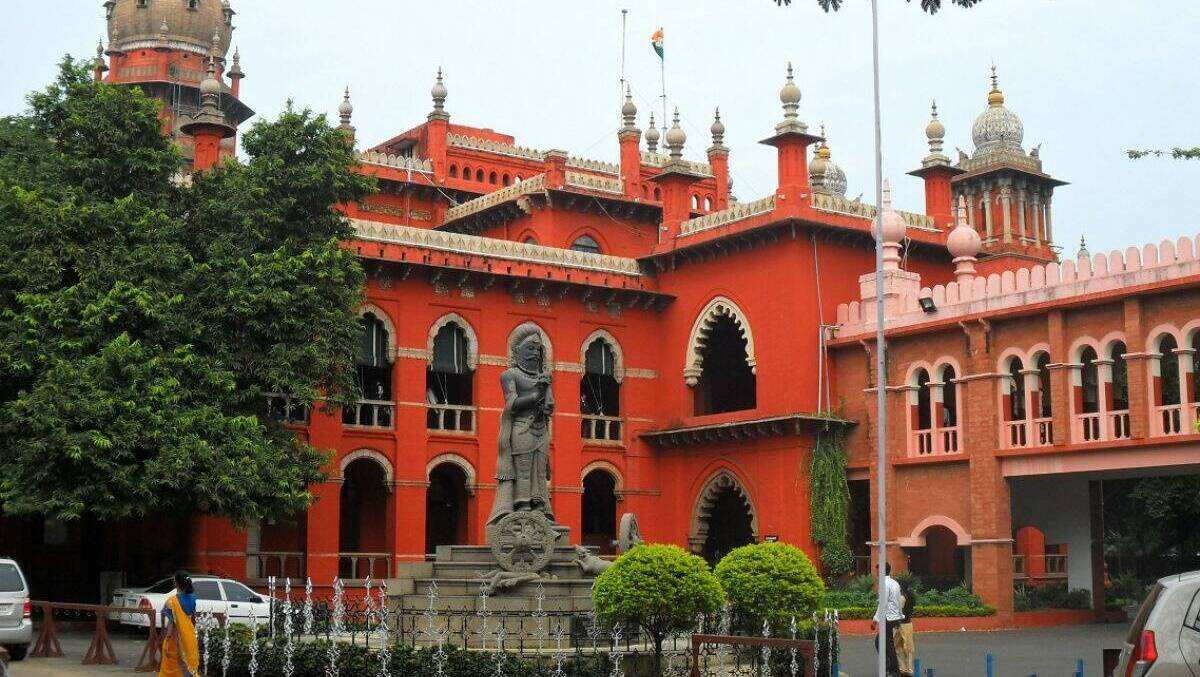In a pertinent judgment, the Madras High Court has examined the scope of treating conjugal rights of a convict/ prisoner as a fundamental right, and in case there is such a right, whether it would be unconditional or subject to other restrictions. The matter was between Meharaj v. The State Rep By Its Secretary & Ors. (H.C.P. (MD) No.365 of 2018) and was presided over by Hon’ble Acting Chief Justice Munishwar Nath Bhandari, Justice P.D. Audikesavalu and Justice Pushpa Sathyanarayana.
FACTS OF THE CASE:
The petitioner wife and the detenue husband, who is serving a life sentence, did not have any children out of their marriage. A second writ petition was filed by the wife seeking a grant of six weeks’ leave for engaging in conjugal relations while receiving infertility treatment, even though the former was given ordinary leave of two weeks by the Division Bench for availing of infertility treatment.
ISSUES TAKEN:
- i) whether the denial of conjugal rights to a convicted prisoner would be violative of Article 21 and,
- ii) whether the state can be directed to consider the request made by the convict for emergency leave or ordinary leave for the said purpose.
JUDGMENT:
The larger bench of Madras High Court observed that infertility treatment fits inside the concept of “exceptional reasons” as envisioned in the Act, and that detainees and convicts may claim this privilege on the basis of a “extraordinary reason” According to the bench, the petitioner’s request for infertility treatment while the offender and his or her spouse are childless constitutes a “exceptional cause” under Rule 20 (vii) of the 1982 Rules. The court did clarify, however, that the couple’s request for a leave of absence for infertility treatment would not have qualified as a “exceptional cause” if they already had a child together. The court further stated that the same “exceptional cause” cannot be used again by a criminal or prisoner to request leave.
The Hon’ble court on matter pertaining to violation of Fundamental Right under Article 21 observed that
“The denial of conjugal relationship of the convict for specific purpose may amount to denial of the fundamental right guaranteed under Article 21 of the Constitution of India. The specific purpose may be infertility treatment or some similar reason, but it should not be construed to be a fundamental right for having conjugal relationship as a course. This would make a difference between the law abider and violator in regard to rights guaranteed under Article 21 of the Constitution of India.”
The court noted that in the instant matter, the petitioner’s first petition was allowed with grant of leave for two weeks for undergoing infertility treatment and immediately after availing it, the second petition was filed in continuity.
The whole bench ruled that in the absence of regulations or legislation, neither the government nor any other authority has the authority to give parole.
The court concluded after reviewing the Yesu verdict that the conclusions in that case did not directly address the authority of authorities to grant a convict leave under the 1982 Rules by suspending their sentence for the leave time. The registrar was instructed by the bench to bring the case before the roster bench for decision after responding to both queries in the manner described above.
“PRIME LEGAL is a full-service law firm that has won a National Award and has more than 20 years of experience in an array of sectors and practice areas. Prime legal fall into a category of best law firm, best lawyer, best family lawyer, best divorce lawyer, best divorce law firm, best criminal lawyer, best criminal law firm, best consumer lawyer, best civil lawyer.”
JUDGMENT REVIEWED BY ADITI PRIYADARSHI


